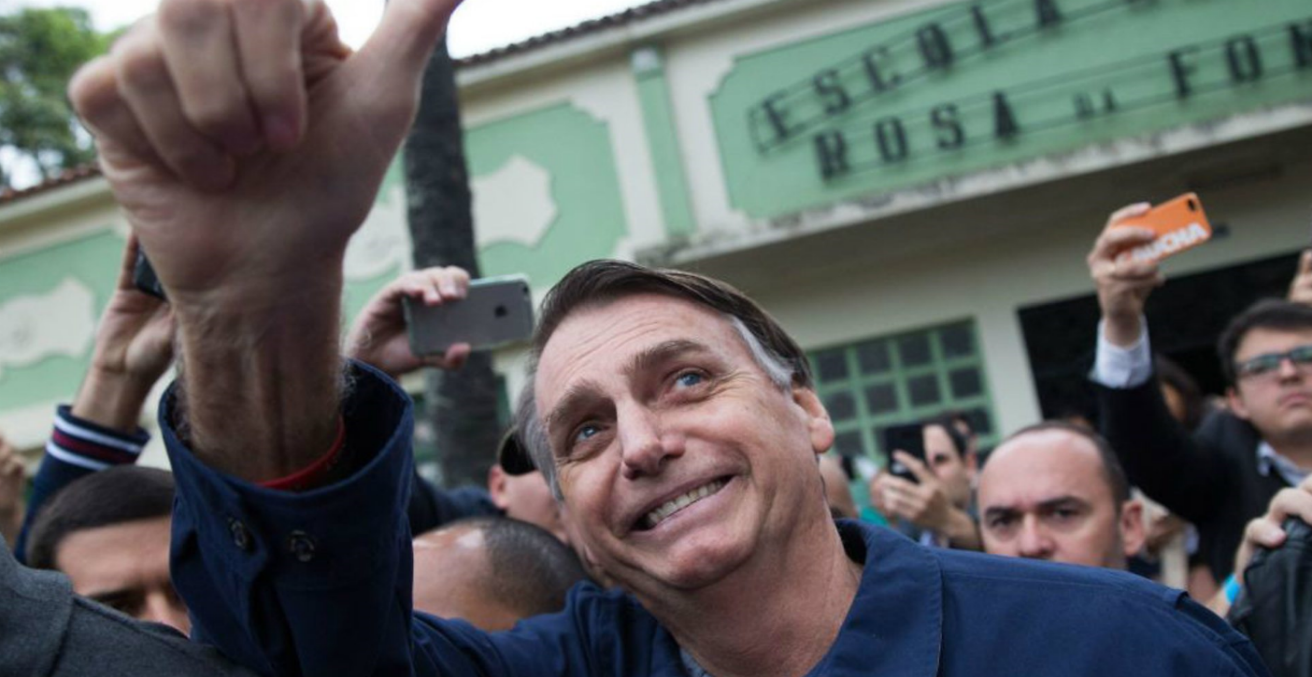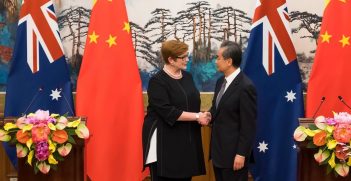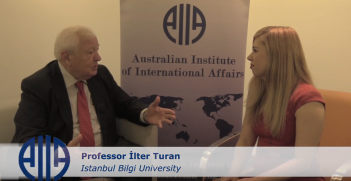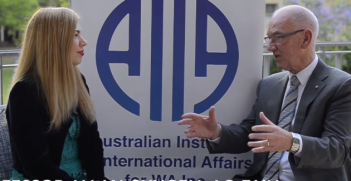Brazil’s First Round Election: The Resurgence of Political Authoritarianism

Economic recession, endless corruption scandals and Lula’s frustrated presidential bid have led to rampant political disillusionment and a resurgence of right-wing authoritarianism in Brazil.
After an angry and polarising campaign, Brazilians have voted for two candidates to contest the final round of voting with polarised political views on the country’s future. Political intolerance and violence was rife throughout the campaign, with far-right candidate Jair Bolsonaro the victim of a stabbing weeks before the election’s first round. There is speculation that the perpetrator was linked to far-left activists, increasing Bolsonaro’s popularity. After Bolsonaro’s stabbing, his son Flavio Bolsonaro stated that “you have just elected the president, and he is going to win on the election’s first round.”
The pressing question is how democratic are Bolsonaro’s views and what political legacy does he represent? Brazil experienced a brutal military dictatorship which lasted 21 years from 1964-1985. Since Brazil’s reopening to a democratic system and with the advent of the 1988 Constitutional Charter, Brazil has struggled to consolidate the rule of law. This weekend’s election results demand reflection on the country’s authoritarian legacy and the resurgence of right-wing authoritarianism in the country’s political discourse.
The resurgence of right-wing authoritarianism
Brazil is increasingly becoming a divided society. The lead-up to the election’s first round was the most polarising since the country’s reopening to democracy in the 1980s.
The left-leaning candidate Fernando Haddad from the Worker’s Party (PT) received 29.3 per cent of valid votes, while far-right candidate Bolsonaro is riding high with 46 per cent.
Bolsonaro is seen by many as an unreconstructed apologist for the military dictatorship that ruled Brazil from 1964-1984, having dedicated his vote in favour of Dilma Rousseff’s impeachment process in 2016 in memory of Carlos Alberto Brilhante Ustra, a well-known perpetrator of atrocities and a notorious torturer of dissenters during the military regime. Bolsonaro stated unashamedly that Brazil’s military dictatorship should have been “tougher” and should have killed far more dissenters than it actually did, suggesting that the military regime should have killed “at least 30,000 people instead of only several hundred,” and that former Brazilian president Fernando Henrique Cardoso should have been executed during the military regime.
Political disillusionment
Brazil has been suffering from a recession and from corruption scandals, such as the Car Wash Operation and Petrobras scandal which have made international headlines. Corruption scandals led to the impeachment of former Brazilian president Dilma Rousseff and the imprisonment of former Brazilian president Luiz Inacio Lula da Silva (Lula), both from the PT.
Some argue that Lula’s imprisonment and his highly politicised trial was a political manoeuvre to keep him away from the presidential race, as his approval rate is still very high. Weeks before the first election round, opinion polls suggested that if Lula was running for president he would have around 40 per cent of the vote.
However, a decision from the Brazilian Supreme Electoral Tribunal decided against his bid to run in the presidential race. Lula’s frustrated presidential bid has embittered his supporters, who claim that his trial, arrest and impossibility to run the presidential race was a coup d’état and an assault on Brazil’s democracy. Dilma’s impeachment process and Lula’s arrest have increased the antagonism between the right and left of Brazil’s political spectrum.
A recent survey by the Brazilian Institute of Public Opinion and Statistics showed that only 25 per cent of Brazilians trusted the federal government and 18 per cent trusted Congress. Other public opinion polling suggests that Brazilians’ faith in their government today is closer to zero. Brazilians’ growing disenchantment with politics is reflected in this presidential race, with the latest polls indicating that both Haddad and Bolsonaro have more than 40 per cent of rejection rates.
The politics of hate and human rights violations
Brazil’s far-right and increasingly popular presidential candidate upholds controversial views on individual rights and the rights of homosexuals and women. Bolsonaro openly argued that parents should “beat homosexuality out of their children” from a young age. In 2014, he stated that he “should rape” his female political opponent PT Congresswoman Maria do Rosario. On 9 December of the same year, Bolsonaro uploaded on his official Congress webpage a video entitled ‘Bolsonaro escova Maria do Rosario’ (Bolsonaro humping Maria do Rosario) featuring his debate with Rosario during question time, together with pictures of a rally in support of the “golden years” of Brazil’s military dictatorship and reinstating an authoritarian government in Brazil. Additionally, in 2016, Bolsonaro stated that he would not employ and provide equal pay to his male and female employees.
Bolsonaro is also known for his disregard of individual rights and freedoms enshrined in the 1988 Constitutional Charter, the first Brazilian constitution after the country reopened to democracy. He has stated that he would never allow his children to get romantically involved with an African-Brazilian. To tackle creeping violence, Bolsonaro said he would ease gun laws and reduce criminal responsibility to 16 years old instead of 18 years. He is a staunch proponent of reactivating the death penalty in Brazil, volunteering to kill those on death row himself. He argues that “with us there will be no human rights protections for criminals” and his political platform calls for widespread chemical castration of sexual offenders. He believes non-government organisations and human rights organisations have paid a disservice to Brazil’s national security and declared that, if elected, Brazil will withdraw from the United Nations.
Depending on the second round results, Brazil could once again move towards an increasingly authoritarian and repressive government, compromising democratic rights and freedoms.
Flavia Bellieni Zimmermann is a PhD Candidate at the University of Western Australia Centre for Muslim States and Societies. She is a commissioning editor for Australian Outlook representing the AIIA for WA.
This article is published under a Creative Commons Licence and may be republished with attribution.





